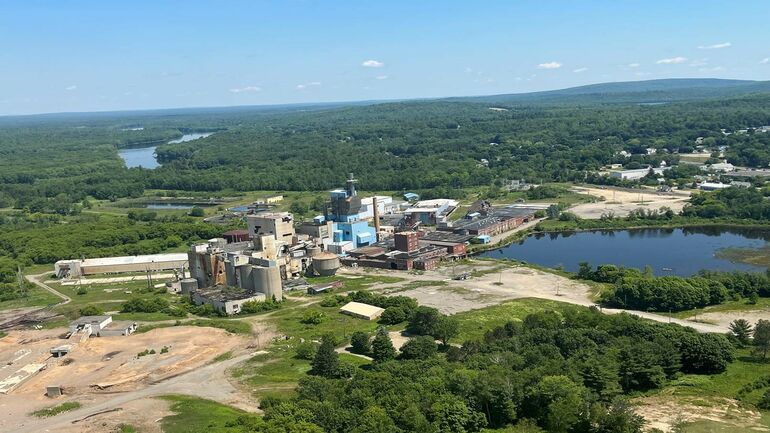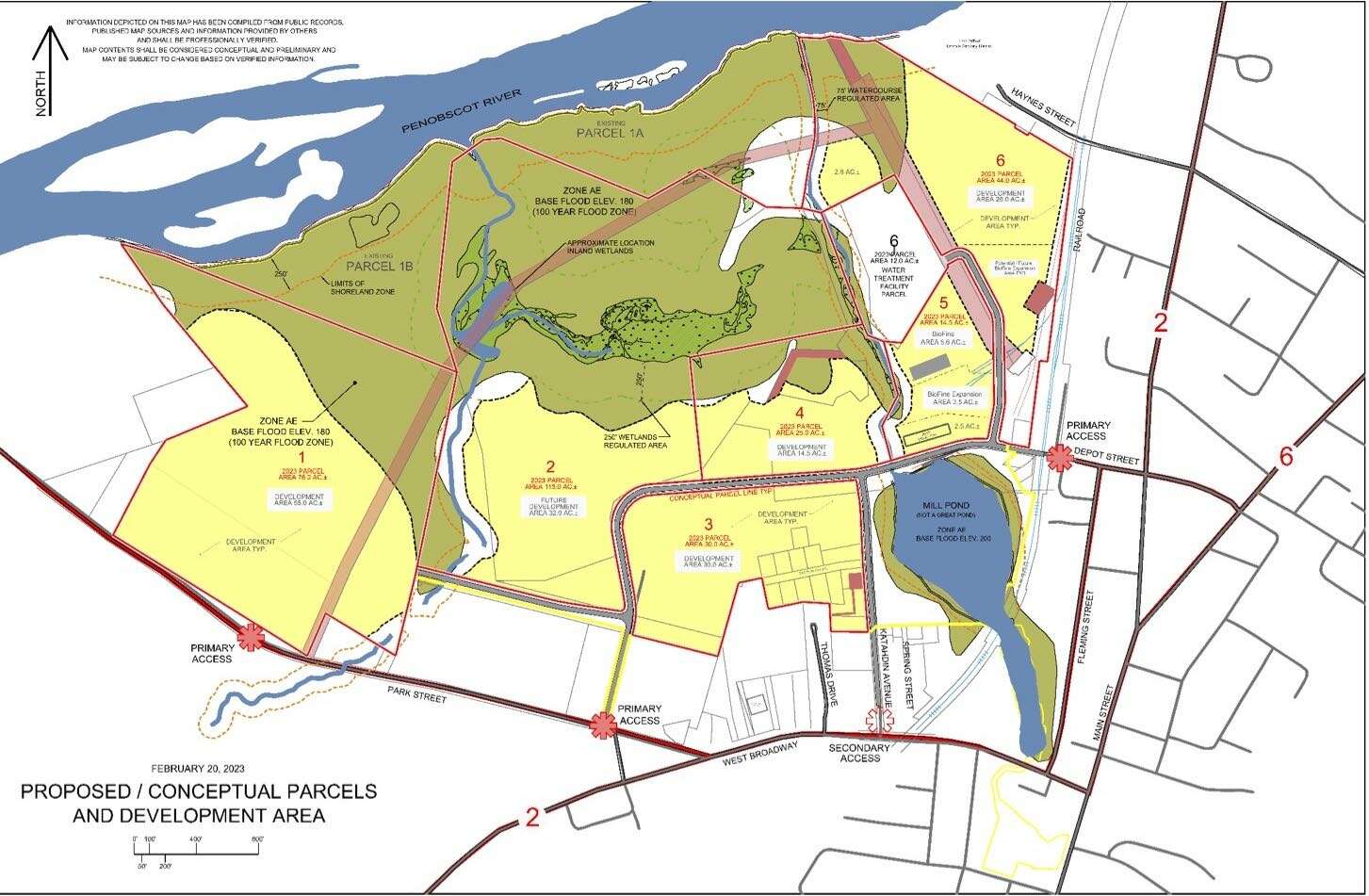
Lincoln looks to attract innovative tech companies to former mill site
 Courtesy / Town of Lincoln
The town of Lincoln is redeveloping the former Lincoln Pulp & Tissue mill site into Lincoln Technology Park, a center for next-generation technology-driven industries.
Courtesy / Town of Lincoln
The town of Lincoln is redeveloping the former Lincoln Pulp & Tissue mill site into Lincoln Technology Park, a center for next-generation technology-driven industries.
More Information
A recently finalized lease by a bio-refinery plant was exactly the innovative type of use envisioned by the town of Lincoln for its new technology park.
“We’re developing a plan. We have the vision,” Steve Levesque, who was hired by the town as an economic development advisor, told Mainebiz.
Levesque led the rebirth of the former Navy base in Brunswick as a business park, Brunswick Landing, which includes TechPlace.
Biofine Developments Northeast — a subsidiary of Brookline, Mass.-based Biofine Technologies Inc. that derives heating and transportation fuel from low-quality woody biomass — and the town of Lincoln agreed to a 20-year lease to develop a bio-refinery on the former Lincoln Pulp & Tissue mill site.

The lease is the first phase of the town’s long-term redevelopment plan for the site, now called Lincoln Technology Park. Lincoln, a town of 4,853 people, is in Penobscot County.
The site — around 387 acres — is envisioned as a center for next-generation technology-driven industries.

The cost to redevelop the entire site is expected to be north of $60 million, said Levesque.
“The site has some terrific assets for economic growth, with great highway access, ample three phase power, water and sewer connectivity and natural gas,” he said.
700 new jobs
The mill originated in the early 1900s, when a dam was built on Mattanawcook Stream, which provided the large volume of water necessary to make paper. The layout of the mill remained current until its closure in 2014.
Redevelopment goals over the next 10 years are to attract six new technology businesses that directly create 700 new jobs, $75 million in annual wages and benefits and $5 million in annual property taxes to the town. If realized, stated plans would indirectly create 1,000 new jobs, $300 million in total local economic impact, $100 million in annual wages and benefits and $10 million in annual taxes to the town.
It’s expected that redevelopment will offer substantial benefits to the community. That could include reducing the tax burden on residents, increasing town and school budgets, strengthen Penobscot Valley Hospital and other essential businesses, and attracting new services and opportunities to the area.
The town has identified three overarching goals for the site and surrounding properties, including removing environmental issues as development barriers, securing funding for infrastructure improvements and securing new business investment.
‘Go to’ site
The town is positioning the park as a “premier ‘go to’ site” for innovative industries that can benefit from Lincoln’s geographic location and availability of infrastructure systems.
With the emphasis on innovation, target sectors would include, but aren’t limited to:
- Forest products such as biofuel derived from wood cellulose, mass timber products
- Wood product processing and manufacturing
- Advanced materials and composites
- Renewable energy development such as solar, biomass, combined heat and power and bio-digestion
- Value-added food product manufacturing for industries such as aquaculture and agricultural food production and distribution
- Information technologies such as data management and contact centers
In order to develop a framework for the size and scale of development activity that could locate at the park, the town developed a table that provides a conceptual plan of the scale of targeted business activity that could reasonably occur and the related projected job creation.
As the first business, the Biofine bio-refinery, which will be developed in multiple phases, is slated to occupy up to 85,000 square feet of buildings on 12 acres and eventually employ up to 470 people.
Other conceptual uses on the table include a dimensional lumber sawmill on 150 acres and employing 250, a mass timber or cross-laminated timber manufacturing plant on 20 acres and employing 75, an innovation center and business incubator on 5 acres and employing 100, and a solar and biomass plant on 20 acres and employing 20.
Other uses for the site would include other businesses, wood storage, utilities and open space.
Environmental cleanup
The project includes environmental cleanup to pave the way for redevelopment efforts. The town has been working with federal and state environmental protection agencies to obtain funding and provide technical assistance for site remediation. That includes $1 million recently awarded by the Maine DECD/DEP Brownfields program and $750,000 by the U.S. Environmental Protection Agency to clean up contaminants on about 60 acres at the site.
The first phase of cleanup is underway now around the Biofine lease and is expected to be complete this summer, said Levesque.
The town also received money to start removing asbestos in some of the buildings. That will be a sequential process expected to take up to a decade.
The site has several hundred thousand square feet of existing buildings. Biofine will occupy one of the newer buildings. But most of the others will be demolished, said Levesque, and the town is developing a demolition schedule.
The town also plans to create new infrastructure to support new companies.
“It’s a dynamic but ongoing work list of projects,” said Levesque.
There has been strong interest from other potential leasers, he added.
Construction of the Biofine plant is expected to start within a year, with completion likely by mid-2025 for the company’s first phase of operation.
While the plant is under construction, associated projects by the town will include an industrial wastewater treatment plant, extending public water and sewer lines, and road improvements.
A formal marketing campaign, still to come, will include direct mail to potential clients and participation in trade shows that cater to desired sectors. The goal is to bring out-of-state companies to the park.
“This project is a great economic challenge, with great opportunities,” Levesque said.














0 Comments